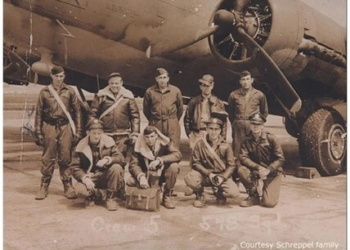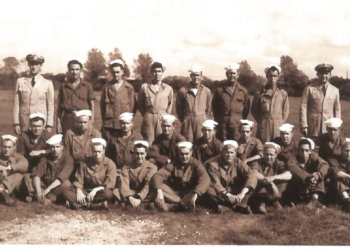There’s a hiring fair happening somewhere near you. Fed up with the lack of results from your current job-search approach, you decide to go. At the career fair, you approach a booth, shake hands with the representative of the company and then have no idea what to say.
Is that scenario familiar?
Universally, this is a something many transitioning service members experience. Most often it’s because a job seeker doesn’t know how to sell their skills to recruitment managers at the career fair.
Hiring fairs, career fairs, networking events and other mixers are all ideal opportunities to build relationships and grow your professional network. The challenge comes in being well–prepared and having a script of sorts to lean on when you’re standing at that hiring fair booth.
Jermaine Higgins is the vice president of operations and recruiting with Hire G.I., an organization that helps transitioning service members connect with employers who are actively seeking employees. Hire G.I. events average 200 attendees and about 35% of them receive offers for employment or offers to interview, so Higgins has seen it all.
He thinks it’s important that service members be realistic, respect the time of the recruiter, and do their fair share of work before the event. Of equal importance is knowing if it’s a hiring fair or a job fair.
“A hiring fair offers a service member a platform for interviews on-site. This means they might walk away with a job. A job fair is generally used to network with recruiters and get insights into what will make you more competitive with the company,” said Higgins.
An often-overlooked aspect of attending is the registration process. Higgins says it’s the simplest way to prepare because it gives you real time updates about the event.
“When you register for the career fair, you get access to all communications from the host. You can usually upload your resume ahead of time so employers can review it – all before the event even starts,” he said.
R-E-S-P-E-C-T
First, respect the time of the person with whom you’re speaking. Have a polished and succinct “elevator pitch” on the ready for the company representative. At most, 10 sentences about how your path led you to stand before them will suffice. This is a first-glance opportunity for you to make a stellar impression. Make sure you can clearly identify what benefits you’ll bring to any company.
“On average, most recruiters spend less than two minutes with each potential candidate,” notes Higgins.
That means you need a well-polished and coherent elevator pitch. Practice selling yourself by succinctly and quickly explaining why you would make an excellent asset to any team. A fair gives you face time with a prospective employer and allows you to hone skills that you might be lacking.
Learning to speak civilian about the specific skills and traits you honed while in the military can be a challenge. View a fair for what it is and know that your first time out of the gate might not be your best. Be patient and realistic and work the skills. The more often you practice, the better you’ll become.
Determining your hard and soft skills and being able to eloquently speak about each is an asset that takes time to develop, but one that becomes invaluable the more it’s used, especially at a job fair. That way, when a hiring manager or corporate representative asks you to explain your work history, you have an answer at the ready.
Be realistic
Keep your expectations in check. View the experience just like an interview and challenge yourself to interview well.
“From my experience, many think that a job fair will get them a job on the spot,” said Higgins.
The reality is that hiring fairs are attended by hundreds of service members, so the best way to ensure you stand out is to make sure you offer the hiring manager a memorable experience.
Higgins also suggests that attendees do research about the companies which interest them most before attending.
“Look over the list of attending employers and decide which are your top contenders. Then visit their websites and do a deep dive into what the company does, what jobs are available, and what the culture is like,” said Higgins.
The better you understand the companies in attendance, the better chances you have of really connecting with a representative. This can easily segue into authentic and open communication with the hiring manager. Plus, it sets you aside from the rest of the applicants because it shows you put the time in to familiarize yourself with them.
Intermingle
A hiring fair allows you to network with other job seekers who are also seeking employment. This gives you the ability to measure how well you stack against the competition. You can also use fairs to grow your own network, since the stronger the unit, the stronger the individual is a truism both in and out of the military.
Of course, seeking employment is just like any other skill: it takes practice to perfect. With time, and the right amount of consistent exposure, you can improve your chances of landing a job that you really want.
Read comments






































